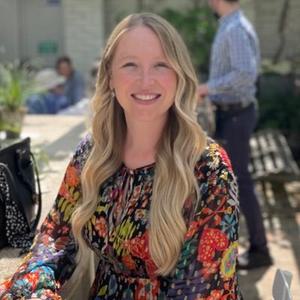Default accessible. Default green

Categories: QEPrize Ambassadors Energy and sustainability
8 March 2022
Author: Susan McDonald
Hailing from Glasgow, Scotland, I was excited to see COP26 in my hometown, where my focus and hope were that there were commitments made to ensuring deliberate and collective actions were taken to avert climate catastrophe.
Listening and contributing to forums and events at COP26, I was struck by just how many of us were asking the same question; how do we ensure a Just Transition strategy?
To avert climate catastrophe and ensure that policy and technology solutions benefit all parts of society - and do not over-burden specific or vulnerable communities but take them on this critical journey too - I believe that co-design and shifting from opt-in to opt-out strategies will be key to shaping the future of our planet.
Default accessible
Diversity and shared lived experiences should be and must be part of reshaping our future to one that is inclusive, equitable and sustainable.
My experience of spearheading accessibility and usability of the NHS Test and Trace COVID-19 PCR Home Testing Service demonstrated to me the importance of starting the creativity and function processes with a commitment to inclusive design.
Establishing a collaborative and co-design partnership with the Royal National Institute of Blind People (RNIB) - that grew to include The Macular Society, Thomas Pocklington Trust, Visionary, and Be My Eyes - led to the shaping and delivery of a programme of customer experience research trials with blind and partially sighted participants. The work of my team, the partners and the input from participants helped identify, trial and implement digital and non-digital solutions that helped improve and innovate the Home Test Service for all users.
This experience and lessons learned from this work amplified for me the importance we must place on ensuring that the services and infrastructure we design and implement to combat and adapt to climate change is inclusive and equitable, and that the shortest route to value is a co-design model.
Default green
Following my work on the NHS Test and Trace programme, I joined Deloitte’s Net Zero Transformation Strategy team, where I embarked on my next project to support a FTSE100 company reshape their vision and Future of Energy strategy. Through our work, we helped our client build an understanding of customer segments and simulated how their behaviour may change in response to and through the energy transition. This work helped demonstrate the importance of bundling services, customer lifetime value as a key metric, and the importance of financing options as a mechanism to make the shift to green and sustainable outcomes more affordable. Removing high upfront costs by offering customers affordable monthly subscription services, and providing easy access to grants, will enable customers to adopt green and sustainable options.
Reflecting on this work, I believe there are untapped opportunities for organisations to grow economic opportunity and advantage through the net zero economy at scale through taking a more active role in helping domestic and commercial customers transition to green and sustainable options. I believe that to achieve the transformational change that is required to shape and secure the future of the planet, companies need to shift from opt-in to opt-out affordable green and sustainable services. In my view that is how organisations will win with customers and win for the future of our planet.
By no longer placing the burden on individuals, my hope is that collective action through opt-out strategies will deliver the changes to put organisations, communities and society on a course to avert climate catastrophe.
The role of engineers
Climate change is the challenge of our generation, and engineers have a crucial role in shaping and securing the future of our planet.
Engineers by default care passionately about project legacy, the impact of their solutions and that their work benefit all parts of society; it is part of our “engineering DNA”.
It is important that we step up and play our role, driving “default accessible, default green” designs, technologies, policies, projects and innovations to respond to the need for urgent action on climate change.
More on the author, Susan McDonald
QEPrize Ambassador and Award-winning Electrical and Mechanical Engineer.
Energy Transition Lead for Deloitte’s Net Zero Transformation Strategy Team.




